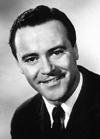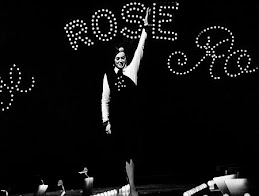

Billy Wilder's "The Apartment" (1960)
"This film is alive," Henry Miller once said, "and it speaks to me."
Movies have many voices. Some simply entertain us; others instruct. A few make us feel alive, and even fewer influence our behavior and decisions.
The ones that grip us in a personal way are the truly special movies in our lives. They have the awesome ability to get us to look inside ourselves and to pursue dreams that we otherwise might never consider.
Growing up, we all invariably have used film as a point of reference, a learning tool, an example. We would gulp down our One-a-Day vitamins, check our PF Flyers to make sure that they were double-knotted and then, almost routinely, make a beeline for the neighborhood Bijou where we would lose ourselves in make-believe, fantasies and daydreams. The Movies. Even the word is glittery.
The special ones stay with us – forever. It takes little mental coaxing for me to remember those personal film arousals that have overwhelmed my life. And I've a suspicion that if I were to connect these movies - the way one connects dots - I'd come up with an image that looks, well, very much like me.
Each of us could be charted by the movies that have guided us, movies we love. As a society, that chart would probably include such titles as "Gone with the Wind" and "The Wizard of Oz," seminal movie experiences that continue to have an impact on the masses.
The beauty of movies is that they work on us personally, directly on our senses. They get us alone in the dark and then, while we're isolated and diverted and vulnerable, they subliminally instruct us in the ways of life. And, sometimes, they lie to us.
They may not always change our lives in conspicuous ways, inspiring us to pick up and move away, get married or have a baby (although some can). What the best of them do is to, quite simply, put us in contact with ourselves.
The movies that are special to us - and you know which ones are your favorites - knock us out with some truth or some indication of what can be. We never do quite get our balance back. We leave the theater feeling dazed, irritated, excited, exhilarated and maybe even eager to do something.
Movies are my life, more than a profession or even an avocation. I will be frank: I dream about them, the way I do about people. They are my world and it's a wondrous place. But one has to be careful because when one lives in a world of movies, one risks living in a place that's close to, well, nowhere.
So, how did I end up in this place?
It started innocently enough. I used movies initially as an escape, then as a learning tool, looking for examples, for role models, for someone with whom I could connect the way everybody does.
 That wasn't easy. I'd sit there in awe of John Wayne, for example - as he fought Indians with his cunning and prowess or, in John Ford’s "The Searchers," as he rescued a teenage Natalie Wood - knowing that I could never measure up. Never. The image of Wayne swooping down and scooping up Natalie Wood has a strong, masculine force that is anything but absurd to a 10-year-old boy.
That wasn't easy. I'd sit there in awe of John Wayne, for example - as he fought Indians with his cunning and prowess or, in John Ford’s "The Searchers," as he rescued a teenage Natalie Wood - knowing that I could never measure up. Never. The image of Wayne swooping down and scooping up Natalie Wood has a strong, masculine force that is anything but absurd to a 10-year-old boy. It was difficult to feel much kinship with the people I saw on screen, but I tried.
Then, I saw a movie that convinced me that, somehow, my life would be emotionally mixed up with movies. When I first saw it, Billy Wilder’s “The Apartment" created a longing so ardent that I thought my chest and head would implode. I remember little else about that summer or that year, for that matter, except that I loved "The Apartment" and that I related to its star, Jack Lemmon, in the most complete, complicated way possible. A point of reference and a role model, at last!
With such dubious assets as his slight build, sagging shoulders, slouching posture and wide-open face filled with basset-hound anxiety, Lemmon filled me with wonder for someone who seemed so much like me - or so I liked to think.

Jack Lemmon was Mr. Joe Average, a guy like a lot of other guys, only with a quizzical alertness and high-strung energy. As Saturday Review aptly put it in its review of Richard Murphy’s “The Wackiest Ship in the Army,” Lemmon was "the perfect personification of all harassed mankind - the outranked, outnumbered, outmanipulated little fellow with sound instincts and bad judgment. He is the one who is always taken advantage of. And if, in the end, he emerges triumphant, it's because of a basic decency rather than superior cunning or sudden inspiration."
I've seen "The Apartment" at least 20 times, maybe more, but I still remember the first time. I was with some friends, kids who tested their tonsils and tangled diction on the screen by shouting obscene words through their cupped hands.
They goofed off, but I watched. “The Apartment” is the first film that I actually studied, reading between the lines and noting techniques. I’ve seen a lot of films, and my list of favorites keep changing, but “The Apartment” – the story of an ambitious office worker (Lemmon) who climbs the corporate ladder by “lending” his apartment to his philandering bosses before getting his priorities straight – has been resistant to any upward or downward revision in my mind. It's been a constant, the test, I guess, of a truly great personal film.
Few movies, however, have the kind of impact on our lives that that “The Apartment” has on mine. But the infrequent great ones do come along from time to time, films that restore our belief in possibilities and that remain our points of reference throughout our lives.
 These movies are like dreams that live on. Each movie, each celluloid dream, becomes a part of our mental scrapbooks. I know that I’ve lingered over movies and movie scenes the way some people reminisce over snapshots of that wonderful vacation in Cape Cod. “The Apartment,” for example, has been carried around inside me ever since that first viewing. It’s familiar and comforting, like an old easy chair that’s been lugged to each new place in which I’ve lived – to remind me of where I’ve been and from where I’ve come.
These movies are like dreams that live on. Each movie, each celluloid dream, becomes a part of our mental scrapbooks. I know that I’ve lingered over movies and movie scenes the way some people reminisce over snapshots of that wonderful vacation in Cape Cod. “The Apartment,” for example, has been carried around inside me ever since that first viewing. It’s familiar and comforting, like an old easy chair that’s been lugged to each new place in which I’ve lived – to remind me of where I’ve been and from where I’ve come. That movie is like a ribbon, a thread, that has run through my life and I can always go back to it. And, like me, throughout the years, it has evolved and changed. It hasn’t remained the same and, for some reason, I find that reassuring.
I still quote lines of the Billy Wilder-I.A.L. Diamond dialogue from the movie – such as Lemmon’s casual shrug, “That’s the way it crumbles, cookie-wise,” or his observation to his dream girl in the film, Shirley MacLaine, as they are about to enjoy a spaghetti dinner on Christmas day: “It’s a wonderful thing – dinner for two.” Shirley MacLaine. Yes, she was my dream girl, too.
Inevitably, I found myself discreetly consulting “The Apartment” as a way of getting through life. A situation would be confronted by speculating how C.C. Baxter, Lemmon’s character in the fim, might handle it. I actually thought I’d grow up to be Jack Lemmon or, at least, C.C. Baxter.
Of course, I wasn’t Jack Lemmon and my life that followed wasn’t at all like the one he lived in “The Apartment.” And with this, I realized that movies have the ability to hit us in more ways, and on more levels, than we can ever appreciate. They are transporting and make us believe.

Up until that time, I spent endless, sleepless nights as a kid wondering if I’d grow up to look like Jack Lemmon (I didn’t) or if I’d join the Navy the way he did in John Ford and Mervyn LeRoy's “Mr. Roberts” (again, I didn’t) or work for an insurance company the way he did in “The Apartment” (ditto) or if I’d marry Shirley MacLaine’s Fran Kubelik (no way). These were actual, recurring dreams.
Ever since I first saw “The Apartment,” my life has been wrapped up, irrevocably, in movies, so much so that, for me, film has evolved into a pop psychology. Film became a part of something larger in my life. Movies and events in my world have tended to blend together.
Along the way, I learned to separate fantasy from reality, to realize that only a few of my movie-fed dreams will materialize. And I’ve also accepted the realization that many of these dreams may fall short of “the way it happens in the movies" - a harsh truth for the movie-loving kid still inside me.
No, the Navy no longer holds any glamour or allure for me, and neither do insurance companies. And I married someone who, I think, is better than Fran Kubelik. But I have other, newer dreams, all of which, I’m sure, also come from the movies.
(Artwork: Scenes from "The Apartment" - Jack, Shirley & Fred; Jack; Jack & Shirley, Jack, and Jack and Billy)


